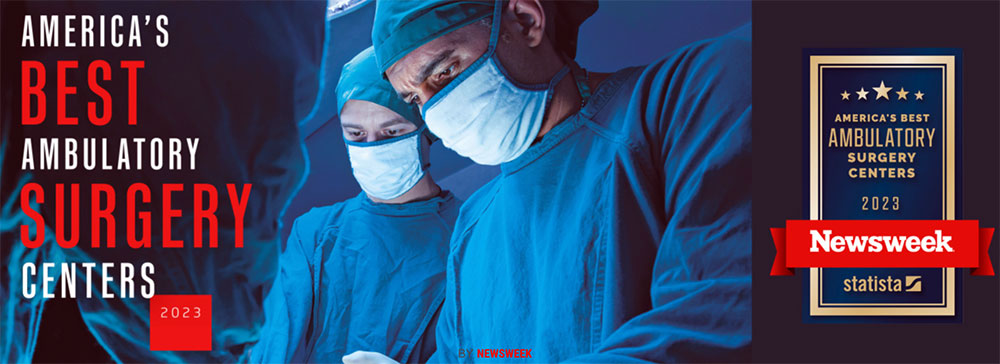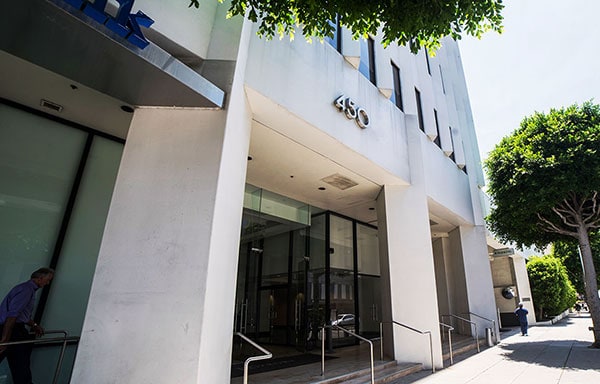
The Cedars Sinai 90210 Surgery Medical Center in Beverly Hills, CA, founded by Dr. Kerry Assil, was just selected as the best Ambulatory Surgical Center (ASC) in the United States. They were awarded a score of 95.5%, with the next closest, UCLA, achieving a score of 87.01%.
After learning of the results, Dr. Assil said, “I am so happy that the Ambulatory Surgery Center I built in 2005 (and is now operated in conjunction with Cedars Sinai) was ranked number one in California and in the entire United States.”
The list of America’s Best Ambulatory Surgery Centers 2023 highlights the nation’s top ambulatory surgery centers based on the quality of care, performance data, and peer recommendations relative to the in-state competition.
“This is a proud moment for myself and Drs. Bob Baravarian, Thais Aliabadi, David Josephson, and Shirin Towfigh, who helped me in the process.”
What are Ambulatory Surgical Centers?
Ambulatory surgical centers are facilities where patients can have common surgical procedures that don’t require them to be hospitalized. This includes procedures like cataract surgery or a colonoscopy. Unlike patients who need more involved surgeries performed in hospitals, ambulatory surgical patients have the operation and then are usually back home the same day.
Newsweek has partnered with global research firm Statista for the third year in a row to help readers make knowledgeable choices when it comes to seeking surgical care for themselves or their loved ones. There are over 5,000 Medicare-certified ambulatory surgery centers around the country, and they offer all major surgical specialties — including eye surgery, orthopedic surgery, cardiac surgery, and spinal surgery.
This year they expanded their list to 510 facilities, up from 470 last year. They awarded the facilities in the 25 states with the most facilities (according to the U.S. Centers for Medicare & Medicaid Services) by individual state and grouped facilities in the remaining states into four regions: Northeast, Midwest, West, and South. Their rankings are based on recommendations by medical professionals and a careful analysis of the facilities’ performance data.
We hope Newsweek’s rankings will help you make your own choices with confidence. Read Newsweek’s entire survey online.
Newsweek’s survey methodology
The third edition of America’s Best Ambulatory Surgery Centers awards the leading 510 ambulatory surgery centers (ASC) in the U.S. based on the quality of care, performance data, and peer recommendations relative to the in-state competition.
The 25 states with the most facilities, according to the U.S. Centers for Medicare & Medicaid Services (CMS), were surveyed individually. The remaining states were grouped into four regions: Northeast, Midwest, West, and South. ASCs from these states were considered accordingly.

Included ASCs operate exclusively for the purpose of providing surgical services to patients not requiring hospitalization and in which the expected duration of services would not exceed 24 hours following an admission.
Over 5,000 ASCs were analyzed, resulting in a varying number of ASCs awarded per state: California had 85 ASCs awarded, while Mississippi is represented with 4 ASCs.
To create the ranking, a score was calculated for each ASC that was part of the analysis. The total score is based on reputation and KPI data sources.
Reputation score
The reputation score (67% of the total score) is based on three-sub scores:
- recommendations
- quality score
- COVID-19 score
1. Recommendation score
In cooperation with Newsweek, from August to September 2022, Statista invited over 4,000 medical professionals (medical doctors/surgeons, registered nurses, nursing assistants, therapists) and staff working in the management/administration of ASCs to an online survey. Additionally, experts from all over the U.S. were able to participate in a survey on newsweek.com.
Participants were asked to recommend up top 10 notable ASCs in their respective state. Recommendations for their own employers were not allowed.
Recommendations received different weights depending on the order in which they were given, with the first recommendation being assigned the highest weight and the tenth-best facility receiving the lowest weight.
The recommendation score constitutes 70% of the reputation score.
2. Quality and COVID-19 score:
For each recommended ASCs, participants were asked to rate four quality dimensions on a scale from 1 (“Poor”) to 10 (“Excellent”).
- Management during the COVID-19 crisis (e.g., safety & hygiene measures).
- Management of waiting time (e.g., appointments).
- Quality of surgical care (e.g., procedure).
- Quality of follow-up care (e.g., physical therapies).
The quality score constitutes 20%, and the COVID-19 score constitutes 10% of the reputation score.
KPI Score
The KPI score (33% of the total score) is based on The Ambulatory Surgical Center Quality Reporting (ASCQR) Program by the U.S. Centers for Medicare & Medicaid Services, which provides KPI data for ASCs.
The KPI data includes the following measures:
- Measure 1: Endoscopy/Polyp Surveillance: Appropriate Follow-up Interval for Normal Colonoscopy in Average-Risk Patients
- Measure 2: Cataracts: Improvement in Patient’s Visual Function within 90 Days Following Cataract Surgery
- Measure 3: Facility 7-Day-Risk-Standardized Hospital Visit Rate after Outpatient Colonoscopy
- Measure 4: Normothermia Outcome
- Measure 5: Unplanned Anterior Vitrectomy
- Measure 6: Hospital Visits after Orthopedic ASC Procedures
- Measure 7: Hospital Visits after Urology ASC Procedures
For a center to receive a KPI data score it must have reported a minimum of two measures within the reporting period. Centers that reported fewer measures did not receive a KPI data score and were rated based on the reputation survey score only.
Disclaimer
The rankings are comprised exclusively of facilities that are eligible regarding the scope described in this methodology. The ranking is the result of an elaborate process which, due to the interval of data collection and analysis, is a reflection of the last 12 months. Furthermore, events preceding or following the period from September 21, 2021 to September 21, 2022 and/or pertaining to individual persons affiliated/associated with the facilities were not included in the metrics. As such, the results of this ranking should not be used as the sole source of information for future deliberations.
The information provided in this ranking should be considered in conjunction with other available information about ASCs or, if possible, accompanied by a visit to a facility. The quality of ASCs that are not included in the rankings is not disputed.














